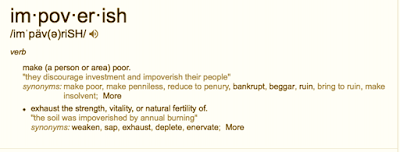
I am, of course, sympathetic to Tom Roberts' recent essay in National Catholic Reporter calling on Catholic clergy and hierarchical leaders to confront the clericalist base of the abuse crisis in the Catholic church. This argument echoes an argument made powerfully by one witness after another confronting the abuse crisis and its cover up.
One section of the essay catches my attention, however, as an illustration of something seriously awry in American Catholicism that has fed into the clericalism yielding the abuse crisis and its cover up. Roberts writes,
All of the apologies and reconciliation services and public displays of sorrow for what had happened — straight up to papal visits with victims that finally occurred during Pope Benedict XVI's reign — lacked a central element: an engagement by clergy with our sacramental tradition to ask what happened and how.
Before another synod is conducted about families, or young people or evangelization, or any other aspect of church life, we need a synod on the clergy culture. Church leaders, after wide consultation with their peers and with respected experts, should meet in Rome. There need be only one topic on the agenda and that topic, in the form of questions, should be distributed to all the priests and bishops in the world.
The central question:
What caused us, members of the Catholic clergy culture, to arrive at the point where we could devise a rationale that allowed us to walk away from the incalculable suffering of the community's children in order to protect those members of the clergy culture who caused the suffering?
We need a synod on the clergy culture. Church leaders, after wide consultation with their peers and with respected experts, should meet in Rome: these statements describe the problem to be addressed if clericalism is to be rooted out of the Catholic community. They do not describe a solution to the problem of clericalism.
There are far more voices within a community that is authentically catholic than the voices of church leaders, their "peers," and "respected experts." The synod on the family was a conspicuous failure precisely because it adopted this top-down, hierarchical approach to synodal consultation, and did not consult widely, listening to as many voices as possible "on the ground" — to the voices of many different kinds of lay Catholics living the family lives defined in the synod by "church leaders," their "peers," and "expert" consultants.
I say that Roberts' recommendation here points to something seriously awry in American Catholicism that contributes to rather than addresses the problem of clericalism. That "something seriously awry" is the lamentable impoverishment of the imagination of American Catholic leaders and of the American Catholic intellectual establishment — its academic and journalistic establishment — about what catholicity itself means. The reflex fall-back to "experts" and "church leaders" and their "peers" illustrates the problem here very neatly: this approach to consultation about an issue as serious as clericalism (and the abuse crisis) mirrors and replicates the very clericalism (and the hierarchicalism) that has produced the abuse crisis in the first place.
There are many, many more voices in the Catholic community than the voices of "experts" and "church leaders" and their "peers." Those voices seldom receive the kind of hearing they deserve within the "liberal" Catholic intellectual establishment that parses the definition of catholicity for the American Catholic church, in tandem with the hierarchy. As I learned in the early 1990s when I sought to obtain a hearing at NCR for my story of expulsion from the Catholic academy because I am gay and long partnered, the American Catholic intellectual establishment, with its purported "liberalism," acts as a gatekeeper for the American Catholic conversation, and at that point in time, NCR's movers and shakers told me in no uncertain terms that they did not intend to hear or tell my story. (I mention this case by way of illustration of a problem that is wider than my own personal case.)
This approach to what catholicity means in American Catholicism has done incalculable damage to the American Catholic church. It has reinforced the very clericalism that Tom Roberts and others rightly identify as the deep root of the abuse crisis. It mirrors the way the clerical culture operates in insulating itself from the rest of the church, in turning itself into an elite club, in deluding itself into imagining that it has an "expert" optic on the church which non-experts lack.
This approach to what catholicity means in American Catholicism echoes the elitism of the "liberal" Democratic political establishment, which has badly failed American citizens by failing to consult widely, to listen broadly, to value all voices equally, as it forms policy recommendations for the Democratic party. As people of color, women, Hispanics, people on the economic margins of American society, LGBTQ people, and many others are now telling the "liberal" Democratic establishment, if the Democratic party hopes to have a viable future in politics in the U.S., it must move beyond the hierarchical model that privileges the voices of "experts" and elite groups and start listening intentely to its base. If it wants to have a future . . .
Ditto for American Catholic "liberals," if the U.S. church really is serious about addressing the clericalist roots of the abuse crisis. And if the American Catholic intellectual establishment and its leaders really do care about the future of the church they claim to lead . . . .

